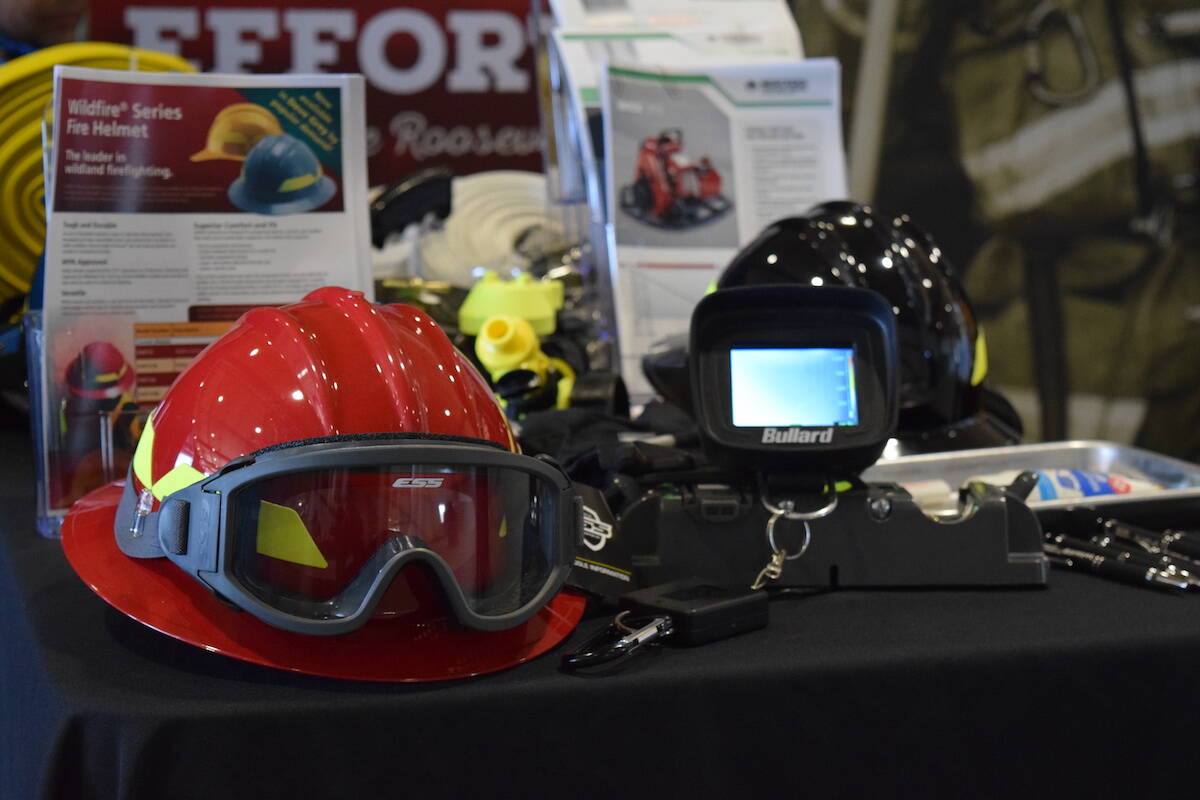“There’s no one-size-fits-all formula,” said Brittany Seibert, Emergency Program Coordinator for the City of Penticton.
Seibert and BC Wildfire Structural Protection Specialist Scott Cronquist presented at the Canadian Wildfire Conference on Oct. 26, at the KF Aerospace Centre for Excellence in Kelowna.
The presentation focused on structural protection with aerial support.
“Protection can start well ahead of the wildfire season,” said Cronquist, referencing FireSmart practices and how people can protect their homes before the fire sparks.
When a wildfire sparks an assessment is done on critical infrastructure near the blaze. Collaboration with First Nations, nearby communities, and local fire departments is key in understanding how to best battle the fire and ensure safety for everyone working.
“Factors like water supply, protection of cultural values, safeguarding critical infrastructure should be addressed,” Seibert said about why communication between all personnel and those being impacted is important.
Once it has been determined that structural protection equipment is required, Cronquist said the first focus is sprinklers to create a humidity bubble and steer the fire away from the area.
As was seen in the McDougall Creek wildfire in West Kelowna when the Rose Valley Water Treatment Plant, a $75 million project, was threatened.
“That was one of the first things that we protected when that fire was coming, and that fire eventually wrapped around it and there was no damage to that,” said Cronquist.
READ MORE: New West Kelowna water treatment plant to open the taps in November
In some cases, however, having ground crews set up structural protection isn’t possible due to the landscape of B.C. That’s where aerial firefighting support becomes crucial.
Cronquist credited aerial support for no structures being lost near Kilpoola Lake, an area threatened by the Eagle Bluff wildfire that spread across the Canada-U.S. border into Osoyoos.
“Several key elements played a pivotal role in success. One was the effectively coordinated air support utilizing aerial resources to put down retardant lines, buckets to control the fire, air ignitions were strategically used to create fuel breaks and manage fire spread, structural triage, sprinkler protection, safeguarding of vital buildings and critical infrastructure.”
When it comes to the 2023 wildfire season in B.C., Cronquist commented that it was a busy fire season and aerial resources were stretched thin battling hundreds of wildfires. Thousands of homes have been lost since the season began on April 1, but not from a lack of effort.
“The FireSmart program… is the best tool we have,” said Seibert. “It really makes a difference in what we’re able to do in structure protection and a structure defense point of view. It really helps alleviate the amount of resources that we’re going to need, the amount of time that we’re going to need trying to mitigate properties, and it just increases the effectiveness of the work that we do.”
READ MORE: New flight path landing at Kelowna International Airport

